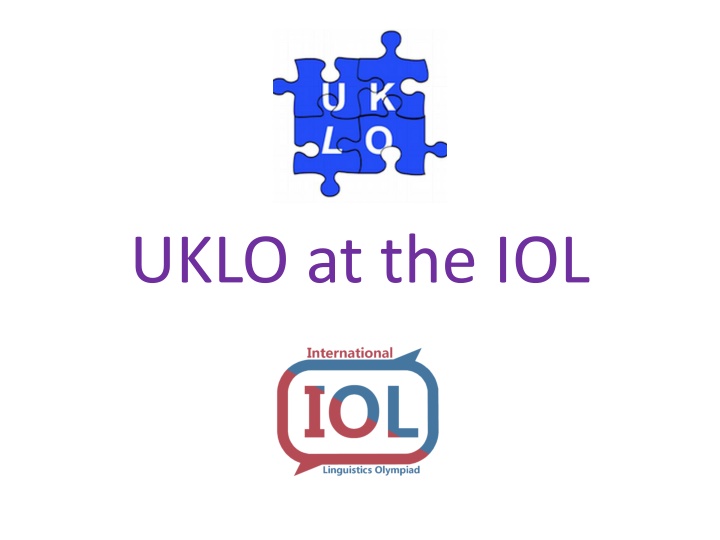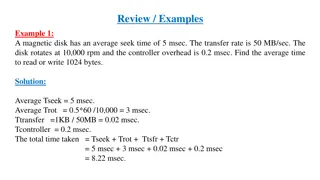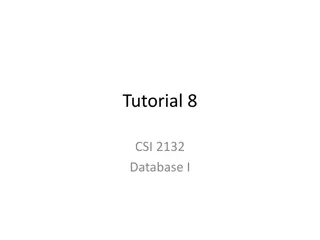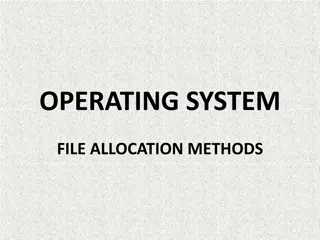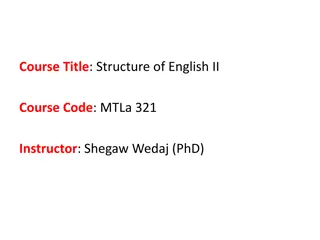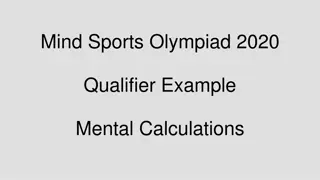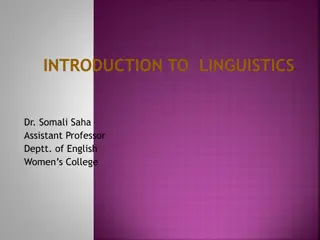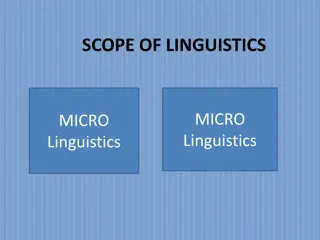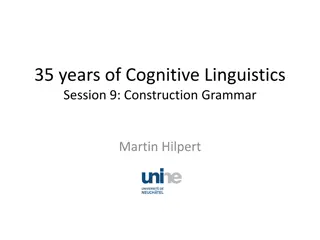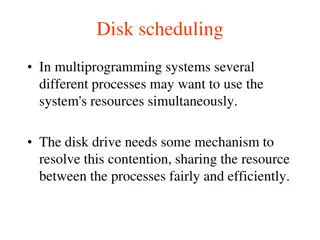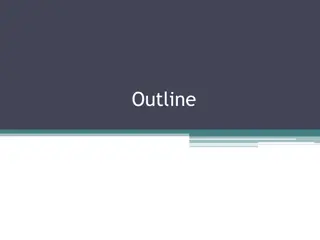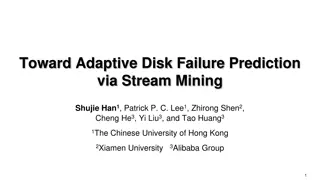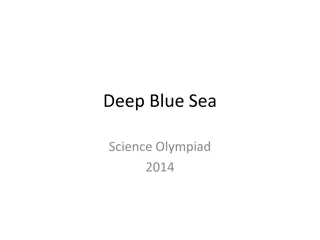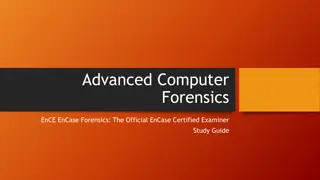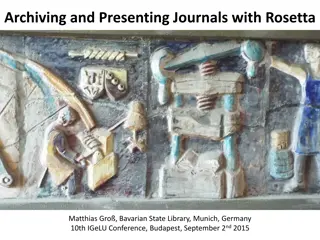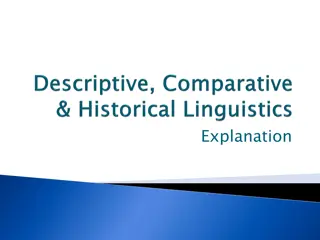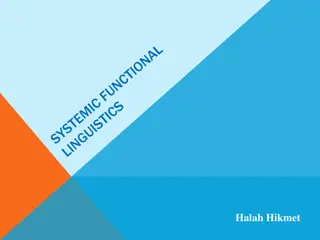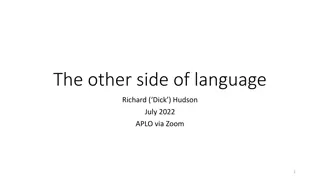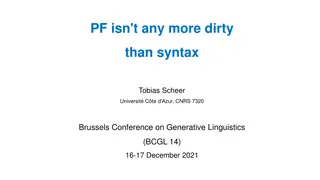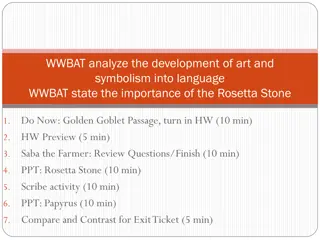Exploring the UK Linguistics Olympiad (UKLO) and the Rosetta Disk
Delve into the world of the UK Linguistics Olympiad (UKLO) and the intriguing Rosetta Disk. Discover the incredible achievements, medal winners, intriguing insights into numerous languages, and the Rosetta Disk's extensive documentation on human languages worldwide.
Uploaded on Oct 10, 2024 | 2 Views
Download Presentation

Please find below an Image/Link to download the presentation.
The content on the website is provided AS IS for your information and personal use only. It may not be sold, licensed, or shared on other websites without obtaining consent from the author.If you encounter any issues during the download, it is possible that the publisher has removed the file from their server.
You are allowed to download the files provided on this website for personal or commercial use, subject to the condition that they are used lawfully. All files are the property of their respective owners.
The content on the website is provided AS IS for your information and personal use only. It may not be sold, licensed, or shared on other websites without obtaining consent from the author.
E N D
Presentation Transcript
UKLO at the IOL in numbers UKLO at the IOL in numbers 9 Olympiads 52 competitors 13 teams 21 medals 12 honourable mentions 2 best solutions 2 team trophies 1 blue vase 3 repeat medallists 1 dream team
UKLO at the IOL: medals UKLO at the IOL: medals
UKLO at the IOL: Olympic scores UKLO at the IOL: Olympic scores
UKLO at the IOL: Hall of fame UKLO at the IOL: Hall of fame Sam Ahmed Triple gold medal winner 2015, 2016, 2017. Sam s medal in 2017 was the top gold in the competition. Sam is now at Cambridge reading linguistics
UKLO at the IOL: Hall of fame UKLO at the IOL: Hall of fame Liam McKnight Triple gold medal winner 2015, 2016, 2017 Liam is eligible for the 2018 IOL
UKLO at the IOL: the Rosetta Disk UKLO at the IOL: the Rosetta Disk Languages of the World This is an archive of over 1,500 human languages assembled in the year 02008 C.E. Magnify 1,000 times to find over 13,000 pages of language documentation
The Rosetta Disk The Rosetta Disk The Disk contains 13,000 pages of documentation on over 1,500 human languages. The materials in the collection were gathered from archives around the world, and include different kinds of language data: descriptions of the community of speakers, maps of their location, and information on writing systems and literacy. There is also grammatical information, including descriptions of sounds used in the language, how words and larger linguistic structures like sentences are formed, a basic vocabulary list, and texts. Many of our texts are transcribed oral narratives. Others are translations such as the beginning chapters of the Book of Genesis or the UN Declaration of Human Rights. The first three chapters of Genesis were collected in as many languages as possible, to provide a parallel text for language decipherment in the distant future.
